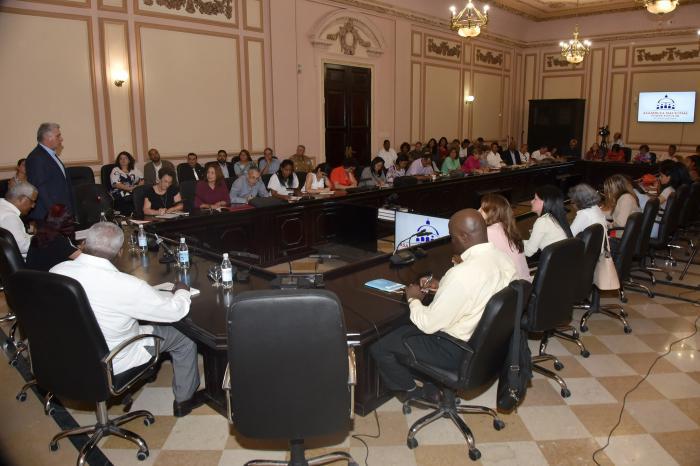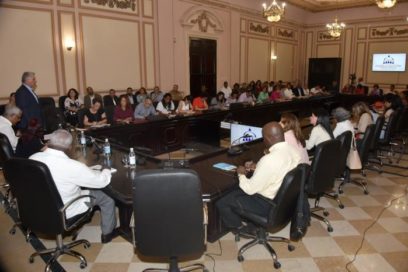It is imperative that «the Constitution be born with support from laws that facilitate its implementation and strengthen it,» said the President of Cuba’s Councils of State and Ministers, Miguel Díaz-Canel Bermúdez, on Monday, during the inauguration of the intensive course on legal techniques, intended for jurists and deputies charged with drafting laws that reflect the newly approved Magna Carta, also attended by Esteban Lazo Hernández, President of the National Assembly.

During the first session of the course that will continue through the week at the Capitolio, headquarters of the National Assembly of People’s Power, Díaz-Canel emphasized that the legislative work demands the participation of all jurists in the country, including law students, given the scope of the task, according to the Presidential website.
Díaz-Canel reported that several working groups have been created, which to date have managed to identify more than 70 laws, «which we must draft, update, or modify,” requiring a tremendous effort, likewise noting that work is already underway on the Electoral Law; the Councils of State and Ministers’ functioning, and that of the Presidency and the National Assembly of People’s Power.
Dissatisfaction with the pace of implementation of policies approved by the government, in recent years, is often based, the President noted, on the lack of participation by jurists in the initial stages of drafting laws, leading to problems from the legal point of view.
Hence, support for the legislative work has been placed in the hands of the University of Havana, with the participation of all the country’s Law Schools. Given the complexity of the many subjects to be addressed, scientific research must be consulted to find answers to problems, the President said, as he has on numerous other occasions.
«The fundamental objective of the course is to prepare you, the hard core of this legislative effort,» he said, «so that you can later share this knowledge with others. May this set a pattern on the legal order in relation to all aspects supporting the Revolution’s principal projects.”
It’s a question of “debating, harmonizing, and unifying elements of legal norms, their content and structure, among us all… to ensure solid policies and laws, from a legal and comprehensive point of view,» he said. (Taken from en.granma.cu)


